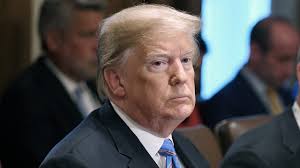Outgoing ECB Chief Mario Draghi Managed to Anger the Germans and Donald Trump with an Interest Rate Cut

Going into today’s European Central Bank rate decision, outgoing chief Mario Draghi was asked to pull off the impossible—to fight off recession, to keep Europe’s biggest commercial banks happy and to somehow not antagonize President Trump.
The Italian central banker made it clear he only cares about the first two. He shook off fresh complaints from Trump with the competent nonchalance that earned him the nickname “Super Mario.”
The real fireworks were over the central bank’s easy money strategy to keep the eurozone from falling back into recession. As expected, the ECB cut its benchmark rate on Thursday, its first downward move in three years. The ECB’s rate for deposits now stands at –0.5 percent, ten basis points lower than yesterday. The ECB’s central rate has been in negative territory for five years.
He did throw the banks something of a lifeline.
Draghi announced a two-tier scheme which will allow some banks to exclude part of their balance sheets from the new low deposit rate as a way to cushion the blow. But the move is still unlikely to pad the bottom line much, especially for those lenders in northern Europe with deep cash reserves.
ECB’s negative-rate policy means that those banks holding the most cash—whether for a potential acquisition, or investment, or out of fear of an economic downturn—are the most penalized. Deutsche Bank and UBS Group are among those complaining the loudest. Deutsche Bank CEO Christian Sewing last week called it “an enormous burden” that could cost the bank hundreds of millions of euros this year.
Analysts said, even with Draghi on the way out, a reversal in policy seems like a distant prospect. And that’s generating a whole slew of new questions.
“When banks have money available to loan, in theory, that’s a good thing,” said economist Francesco Daveri, head of the business administration program at Milan’s Bocconi School of Management and a former World Bank and European Commission consultant. “But if all of them hold onto it, then that creates a big problem. That’s what the ECB is trying to avoid.”
Daveri expressed doubt about that the latest rate cut would convince banks to lend more.
“Lowering rates ten basis points when they’re already forty points below zero will have a very limited impact, if it has any at all,” Daveri said. “At best it helps avoid another drag on growth, which is what would have happened if rates had stayed the same or increased.”
Thursday’s announcement of lower rates was coupled with news that the ECB would relaunch its program of quantitative easing starting Nov. 1, the day Christine Lagarde is expected to move into Draghi’s office. The plan calls for the ECB to spend as much as $ 22 billion a month buying bonds from euro-zone countries “for as long as it takes” until the purchases begin to goose up inflation rates.
The overall plan was opposed by central bank officials in Germany and the Netherlands who remain worried about the impact on their baking sectors. They also fear easy money will encourage bubbles.
Carsten Brzeski, chief economist for ING, predicted in a research note on Thursday that unless the latest moves are accompanied by economic stimulus on national levels that “Draghi’s financial stunt will not necessarily lead to a happy end.”
But no high-profile observer of Draghi’s latest announcement was as critical as Trump, who has been lobbying the Federal Reserve to lower interest rates in the U.S. as a way to perk up the sluggish American economy ahead of next year’s presidential election.
Soon after the announcement, Trump went to Twitter to complain that the move was specifically made to hurt the U.S., charging that the ECB is “trying, and succeeding, in depreciating the Euro against the VERY strong Dollar, hurting U.S. exports.”
In a press briefing Thursday, Draghi was asked to address Trump’s tweet. The 72-year-old economist looked up from his notes on his final balancing act and responded flatly, without blinking: “We do not target the exchange rate,” he said. “Period.”
More must-read stories from Fortune:
—Deutsche Bank CEO on European Central Bank: “Negative rates ruin the financial system”
—September is historically the worst month for stocks. Will 2019 follow the pattern?
—Why the next recession may feel very different than 2008
—Here’s what it would take to get to “win-win” with China on trade
—”Zombie” companies are on the rise–and they could pose a threat to the U.S. economy










